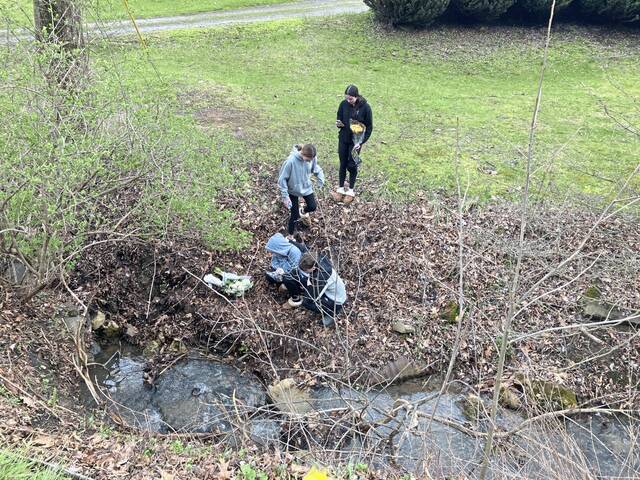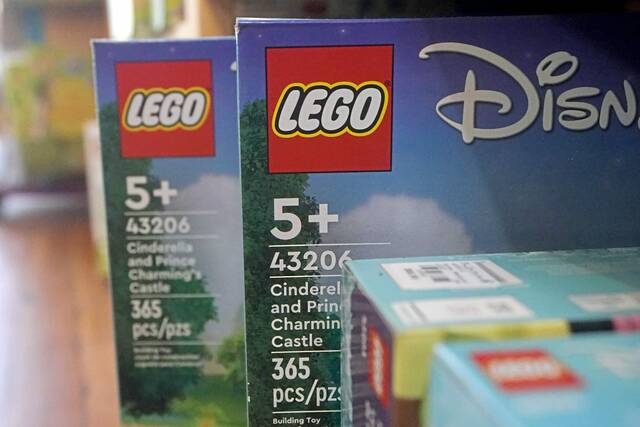When John Britz played with Lego sets as a child, he rarely built what was pictured on the box.
“I was always making other things,” said Britz, 76, of Washington Township, who spent a career in manufacturing with the Elliott Group in Jeannette.
Britz’s creativity — which also includes having designed his house on Paradise Drive — led him to fulfill a longtime dream of securing his own patent once he came up with a new way to manually propel a wheelchair.
“My father-in-law was at a care home and there was another man there in a wheelchair, and it probably took him 20 minutes to go 20 feet,” Britz said. “I know a lot of people in wheelchairs get upper-body exercise that way and don’t always want a motorized chair. And I thought there had to be a way to allow them better ease of movement.”
Britz bought a $40 used wheelchair and designed an adjustable lever-actuated system, with a metal bracket and a small rubber pad that grips a circular ring on the outside of the chair’s wheels.
“You push it one way and you can move forward, and the other way to go back,” he said. “And if you only push one and hold the other, you can do doughnuts.”
Working with Karen Sutton, an intellectual property attorney in Mars, Britz set about trying to secure his patent. The first attempt was rejected by the U.S. Patent Office because it was too similar to existing designs. Britz said a second attempt didn’t quite function as smoothly as he wanted.
“Finally, on my third try, it worked well and it was distinct from other patents,” he said. “I focused on something simple. There are other devices that will do this, but they all seemed to add a good bit of weight — and cost — to the wheelchair.”
All told, it took Britz about $5,000 to successfully secure his patent, which was granted in late February. In the normal course of business, a patent-holder would look to make up that investment by manufacturing and selling their newly protected product.
Britz said he’s too old for all that.
“It’s a prototype,” he said. “If a company comes along and wants to do the necessary testing to manufacture and sell it, I’d receive royalties from that.”
As for the original prototype?
“I gave that wheelchair to my brother-in-law, and eventually it just ended up going out to the curb,” Britz said.
For details about Britz’s invention, see patents.justia.com/patent/11590039 or visit the U.S. Patent Office website at USPTO.gov/patents.







